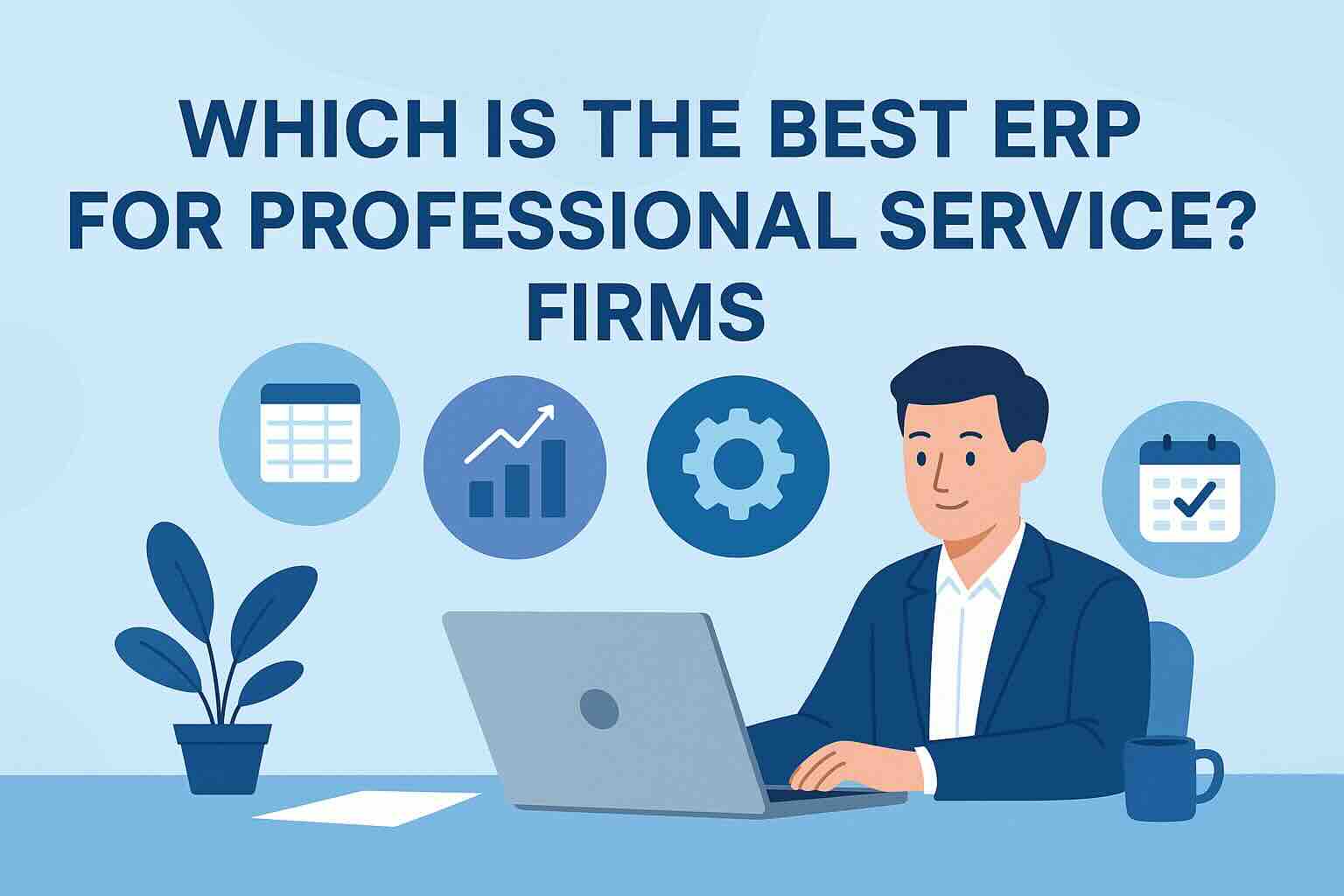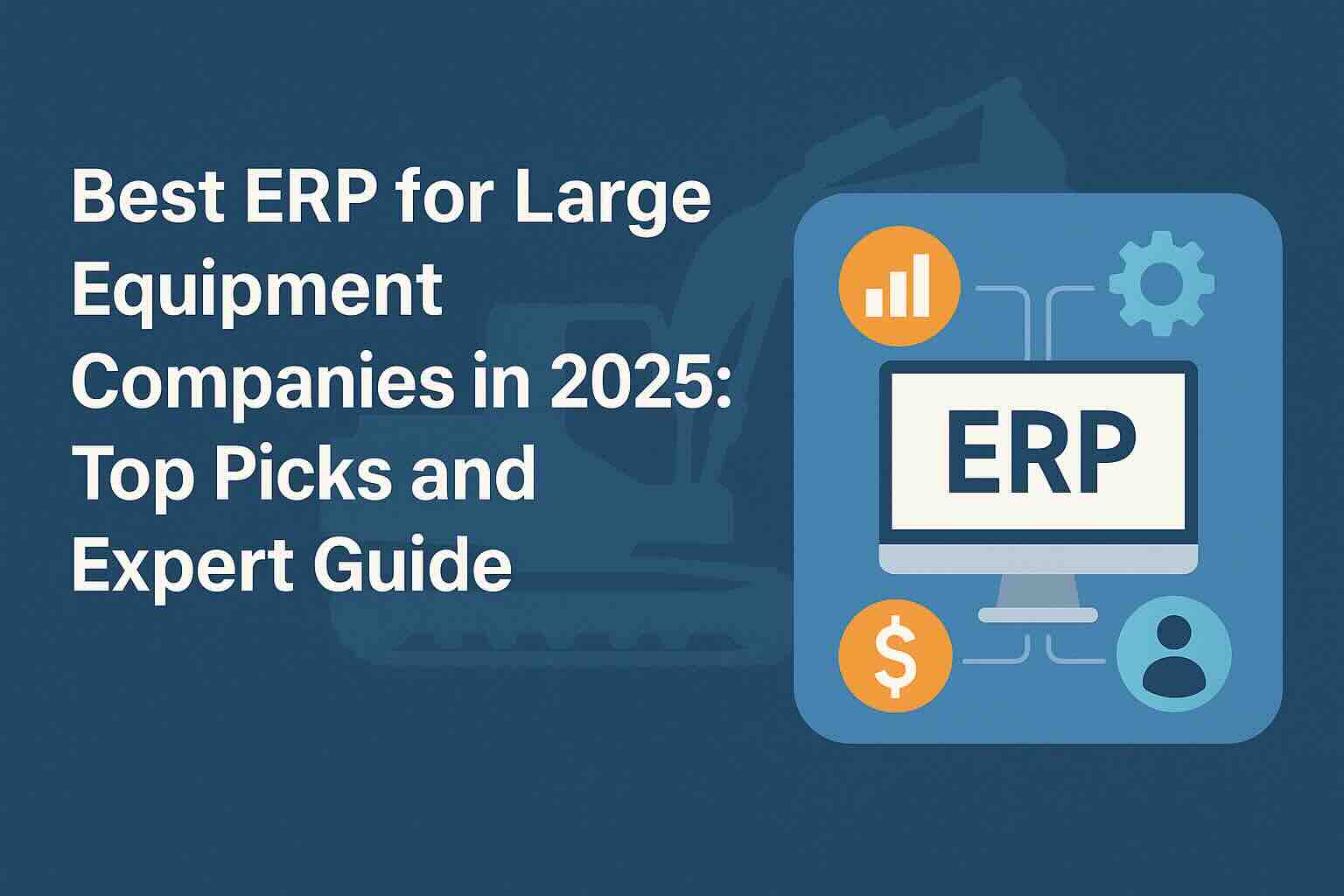Is IFS a Good ERP for Distribution Businesses?

In the dynamic world of distribution, where efficient management of inventory, logistics, and supply chains is paramount, the right ERP (Enterprise Resource Planning) system can be a game-changer. IFS (Industrial and Financial Systems) is one such ERP solution that has gained attention for its comprehensive features tailored to various industries. But is IFS the right choice for distribution businesses? This article delves into the benefits, limitations, and unique features of IFS for distribution companies, helping you decide if it’s the right fit for your needs.
What is IFS, and How Does It Work for Distribution?
IFS, developed by the Swedish company IFS AB, is an ERP platform that caters to industries with complex supply chains and unique operational needs, including manufacturing, aerospace, energy, and distribution. Known for its flexibility, IFS focuses on offering modular ERP solutions that can be customized to specific business processes. For distribution companies, IFS provides features that support essential processes like inventory management, order processing, demand forecasting, and logistics.
Key Features of IFS for Distribution
IFS includes several powerful tools tailored to meet the unique needs of distribution companies:
Inventory and Warehouse Management
IFS’s robust inventory management capabilities enable distributors to track stock levels in real-time, reduce stockouts, and optimize reorder points. This is crucial for businesses managing high-volume inventories across multiple locations.
Demand Planning and Forecasting
Accurate demand forecasting is essential in distribution to avoid both overstocking and stockouts. IFS integrates advanced demand planning tools that leverage historical sales data and market trends to forecast demand accurately, helping distribution businesses maintain an optimal inventory level.
Order Management and Fulfillment
The IFS platform streamlines order processing from receipt to fulfillment, ensuring that orders are completed promptly. With automated workflows, distributors can reduce manual input, minimize errors, and improve customer satisfaction.
Supply Chain Management (SCM)
SCM in IFS provides end-to-end visibility into the supply chain, helping distribution companies manage suppliers, track deliveries, and respond swiftly to supply chain disruptions. This visibility is especially critical for distributors that rely on timely deliveries and agile supplier relationships.
Logistics and Transportation Management
Efficient logistics are fundamental in distribution, and IFS includes features to manage shipping, route optimization, and freight tracking. This helps companies minimize transportation costs, improve delivery times, and streamline the entire logistics process.
Customer Relationship Management (CRM)
For distribution businesses, managing customer relationships is crucial, and IFS provides an integrated CRM that enables better customer insights, improves sales forecasting, and enhances customer service.
Benefits of IFS for Distribution Businesses
IFS offers several advantages that make it a strong choice for distribution companies:
1. Industry-Specific Functionality
IFS is designed to address industry-specific challenges. Its modular nature allows distribution companies to select features relevant to their unique processes, helping them avoid the bloat of unnecessary functionalities.
2. Enhanced Operational Efficiency
By automating core processes like order management, inventory tracking, and demand forecasting, IFS enables distribution businesses to operate more efficiently, reducing overhead costs and minimizing manual errors.
3. Scalability
IFS is highly scalable, making it suitable for both medium-sized and large distribution businesses. As companies grow or enter new markets, they can expand their IFS modules to accommodate new operational needs, making it a future-proof solution.
4. Real-Time Data and Analytics
IFS provides access to real-time data, enabling better decision-making across inventory, demand, and supply chain management. With detailed analytics, distribution managers can monitor KPIs (Key Performance Indicators), identify trends, and make data-driven adjustments.
5. Improved Customer Experience
From streamlined order processing to accurate demand forecasting, IFS enhances the customer experience. The CRM module enables distributors to maintain strong customer relationships, while timely deliveries and accurate order processing improve customer satisfaction and loyalty.
6. Flexibility and Customization
IFS’s modular structure allows companies to customize the system to their specific needs. Distribution businesses can choose modules that are most relevant to them, avoiding unnecessary features and creating a tailored ERP experience.
Potential Limitations of IFS for Distribution
While IFS offers many advantages, there are also a few potential downsides for distribution businesses to consider:
1. Complex Implementation
Implementing an ERP system like IFS can be complex and time-consuming. Distribution businesses may need dedicated teams to manage the transition, and it may take months to integrate the system fully with existing processes.
2. Cost Considerations
IFS’s extensive capabilities come at a price. For smaller distribution businesses with limited budgets, the cost of implementing and maintaining IFS may be prohibitive. However, for larger organizations, the long-term benefits may justify the investment.
3. Learning Curve
With its robust feature set, IFS can be overwhelming for users who are not familiar with ERP systems. Distribution companies may need to invest in training to help employees become proficient in using IFS effectively.
4. Integration with Third-Party Applications
While IFS is highly flexible, there may be some challenges integrating it with other specialized tools. Distribution businesses using multiple software platforms for things like e-commerce, logistics, or customer service may need to invest additional time and resources into achieving seamless integration.
IFS vs. Other ERP Solutions for Distribution
When evaluating IFS, it’s important to consider other ERP options like SAP Business One, Microsoft Dynamics 365, and Oracle NetSuite, each of which has features tailored for distribution:
- SAP Business One is popular among small to medium-sized distribution companies, offering strong inventory and order management but lacking some of the scalability of IFS.
- Microsoft Dynamics 365 offers robust integration with other Microsoft tools, making it suitable for distributors already using Microsoft products extensively.
- Oracle NetSuite is known for its cloud-first approach, which can be advantageous for distributors focused on remote access and digital expansion.
Is IFS the Right Choice for Your Distribution Business?
IFS’s strengths lie in its flexibility, scalability, and robust industry-specific features, making it a strong contender for distribution businesses aiming for operational efficiency and data-driven insights. However, the initial investment, complexity of implementation, and training requirements are significant factors that must be carefully weighed.
IFS is ideal for medium to large distribution businesses with complex supply chains and significant inventory requirements. Its comprehensive suite of tools addresses most challenges faced by the distribution industry, from inventory management to customer service. For smaller distributors or those with limited budgets, alternatives like SAP Business One or NetSuite might offer a better fit.
Final Thoughts
IFS can be a powerful ERP solution for distribution companies seeking to streamline operations, improve customer satisfaction, and gain a competitive edge. With its robust suite of tools and flexibility, IFS addresses many of the unique challenges in distribution. However, companies considering IFS should prepare for a comprehensive implementation process and be ready to invest in training. In the end, the decision will depend on the company’s specific needs, budget, and growth objectives. To find out more about IFS click this link.
To compare IFS Cloud with 100s of other ERP solutions, you can use our new AI-powered Compare ERP tool. It’s free to use and you get a guaranteed discount on your first year’s licence fees with a referral from Compare ERP.









